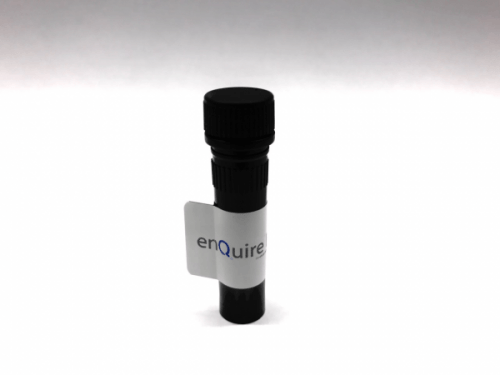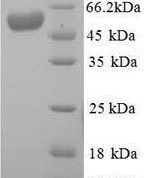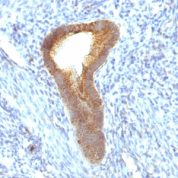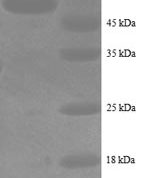Human Anti-Alkaline Phosphatase Antibody Product Attributes
Species: Human.
Predicted Cross Reactivity: Bovine.
Tested Applications: Flow Cytometry, Immunofluorescence, Immunohistochemistry (IHC).
Application Notes: Flow Cytometry (5-10ul/million cells in 0.1ml), Immunofluorescence (1:50-1:100), Immunohistochemistry (IHC) (Formalin-fixed) (1:50-1:100 for 30 min at RT)
Clonality: Monoclonal
Anti-Alkaline Phosphatase Antibody Clone: ALPI/597
Clone ALPI/597 Host and Isotype: Mouse IgG1 kappa
Anti-Human Alkaline Phosphatase Positive Control Sample: Intestine
Cellular Localization of Antibody Cell Surface
Buffer and Stabilizer: 10mM PBS with 0.05% BSA & 0.05% azide.
Antibody Concentration: 200ug/ml
Antibody Purification Method:Protein A/G Purified
Immunogen: Recombinant human ALP1 protein
Storage Conditions: Store at 2 to 8° C (refrigerate). Stable for 24 months when properly stored.
Alkaline Phosphatase Previously Observed Antibody Staining Patterns
Observed Subcellular, Organelle Specific Staining Data:
Anti-ALPI antibody staining is expected to be primarily localized to the plasma membrane.Observed Antibody Staining Data By Tissue Type:
Variations in Alkaline Phosphatase antibody staining intensity in immunohistochemistry on tissue sections are present across different anatomical locations. An intense signal was observed in glandular cells in the duodenum, small intestine. More moderate antibody staining intensity was present in glandular cells in the duodenum, small intestine. Low, but measureable presence of Alkaline Phosphatase could be seen in. We were unable to detect Alkaline Phosphatase in other tissues. Disease states, inflammation, and other physiological changes can have a substantial impact on antibody staining patterns. These measurements were all taken in tissues deemed normal or from patients without known disease.Observed Antibody Staining Data By Tissue Disease Status:
Tissues from cancer patients, for instance, have their own distinct pattern of Alkaline Phosphatase expression as measured by anti-Alkaline Phosphatase antibody immunohistochemical staining. The average level of expression by tumor is summarized in the table below. The variability row represents patient to patient variability in IHC staining.| Sample Type | breast cancer | carcinoid | cervical cancer | colorectal cancer | endometrial cancer | glioma | head and neck cancer | liver cancer | lung cancer | lymphoma | melanoma | ovarian cancer | pancreatic cancer | prostate cancer | renal cancer | skin cancer | stomach cancer | testicular cancer | thyroid cancer | urothelial cancer |
|---|---|---|---|---|---|---|---|---|---|---|---|---|---|---|---|---|---|---|---|---|
| Signal Intensity | - | - | - | - | - | - | - | - | - | - | - | - | - | - | - | - | - | - | - | - |
| ALPI Variability | + | + | + | + | ++ | + | + | + | + | + | + | ++ | + | + | + | + | + | ++ | ++ | + |
Limitations and Warranty
enQuire Bio's Alkaline Phosphatase Anti-Human, Cow Monoclonal is available for Research Use Only. This antibody is guaranteed to work for a period of two years when properly stored.








There are no reviews yet.